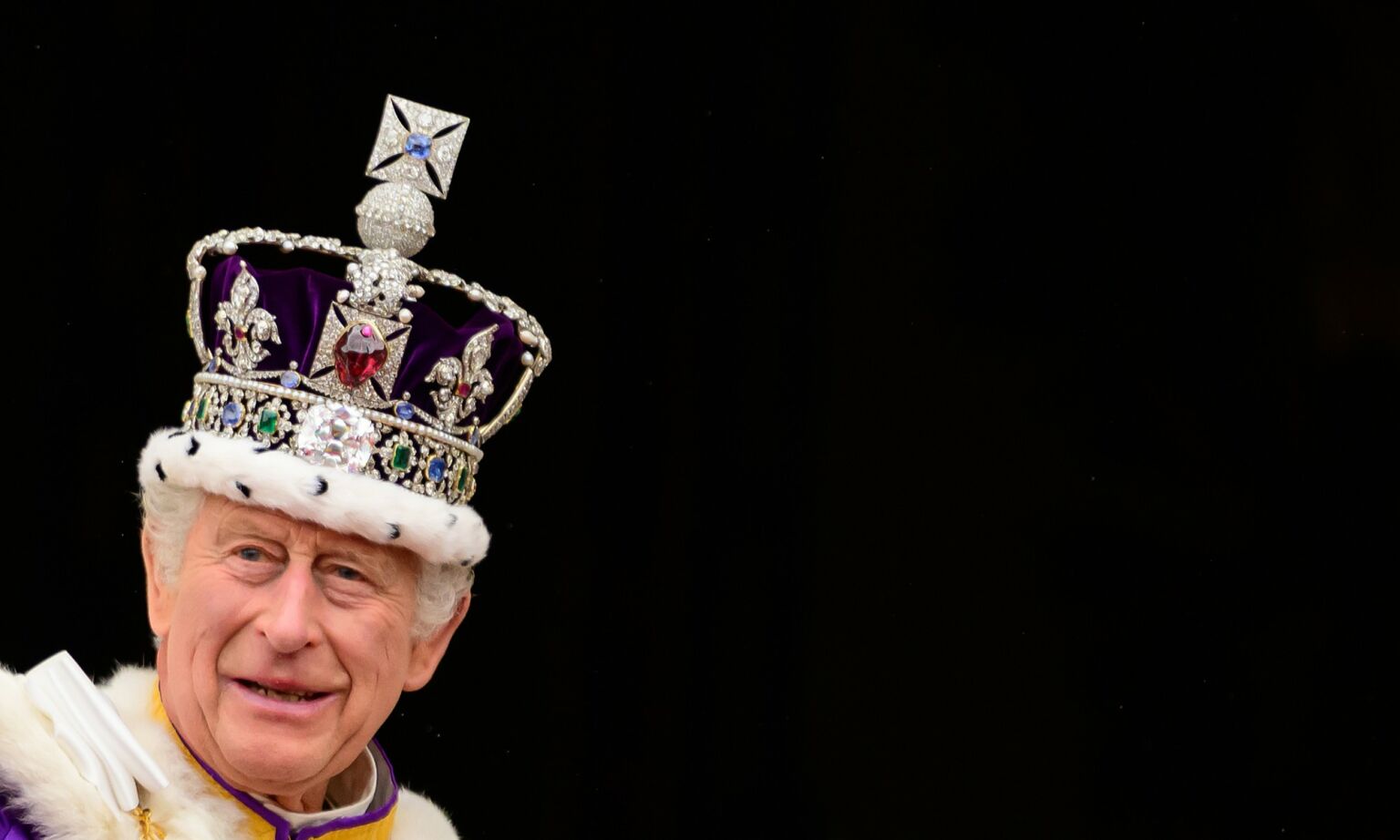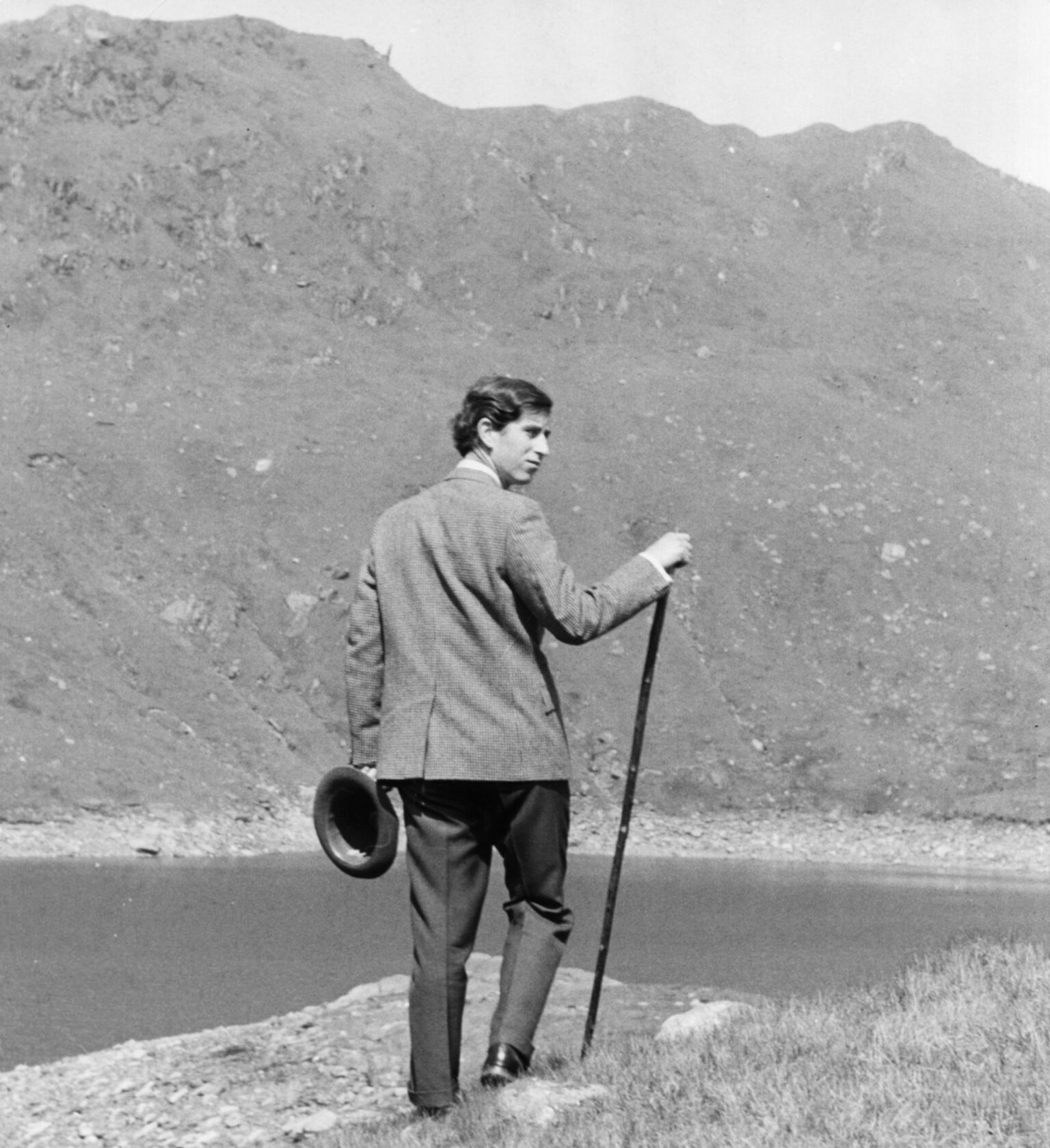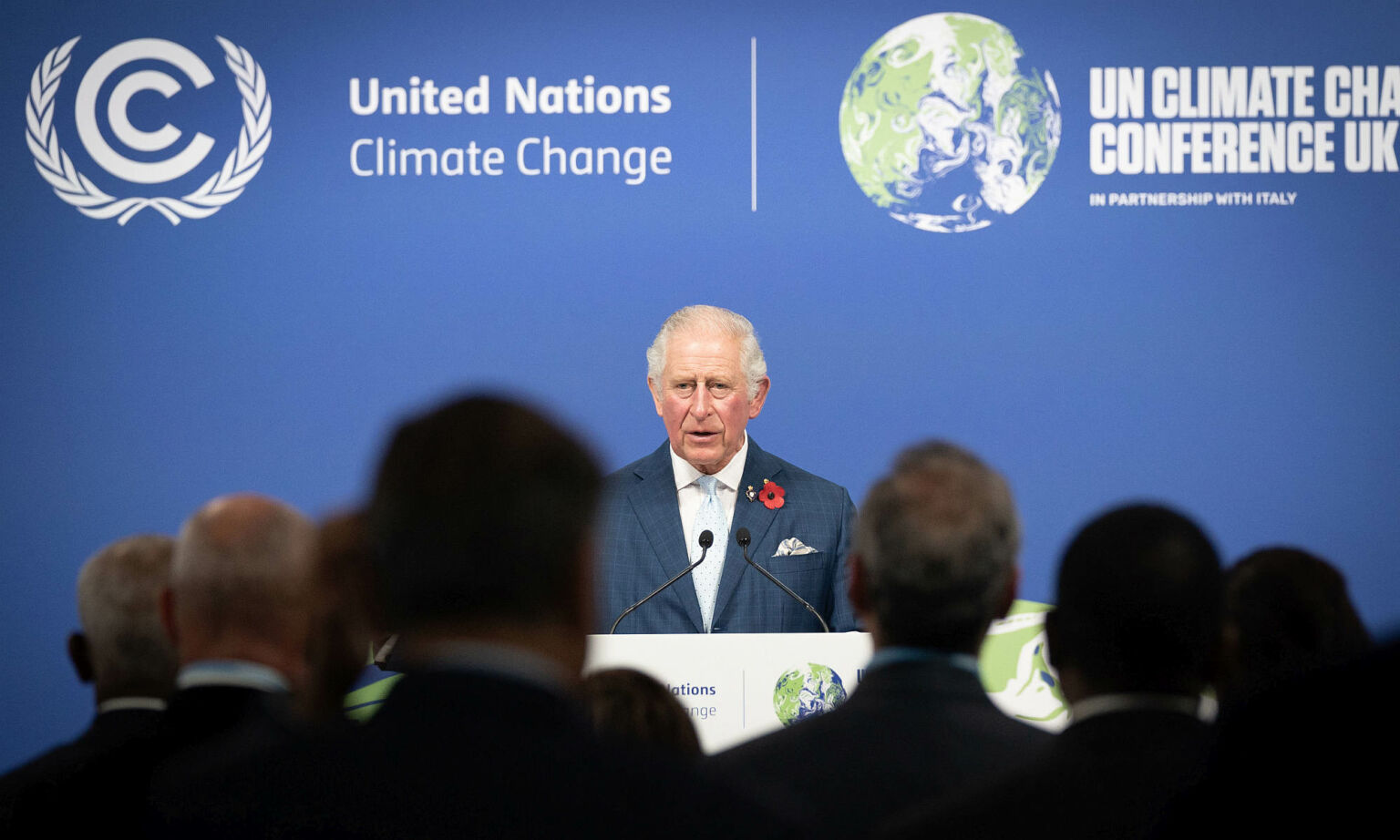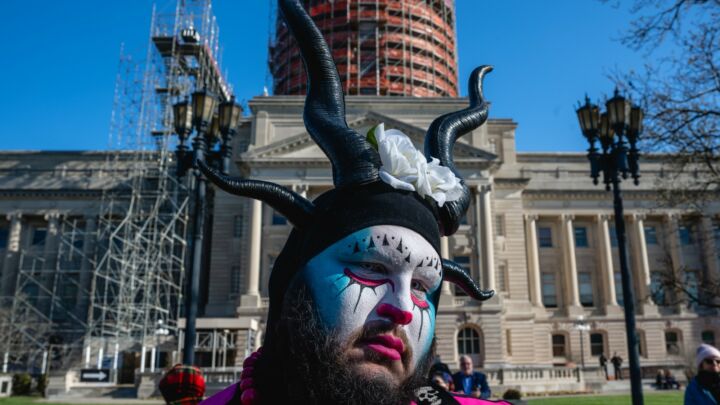
Long-read
King Charles: a reactionary ruler
Our green, mystical monarch harbours a deep suspicion of modernity, science and freedom.
For much of his 50-odd years as Prince of Wales, Charles was seen as a bit of an oddball. He pushed homeopathy at the expense of modern medicine. He was once forced to deny rumours he’d been ‘dabbling in the occult’. And, of course, he endlessly gave vent to his deep green views.
When, in 1970, the then 21-year-old prince warned of the damage humanity was doing to plants, trees and ‘any other animal that is often unfortunate enough to share this Earth with us’, press and public alike were bemused. When Charles revealed, 16 years later, that he spoke to his plants to help them grow, gales of laughter swept across the land.
In short, the man who was crowned king this weekend was seen as a few sandwiches short of the full afternoon tea. A bit ‘dotty’, as Charles himself recalled in 2020 – which was one way of describing someone rumoured to travel everywhere with his own toilet seat. Satire show Spitting Image went in harder, caricaturing him as a simple-minded naif, chatting up potted plants while waiting interminably for his time on the throne. A 1984 Daily Mirror piece imagined the future King Charles as some sort of aristocratic hippy, sat ‘cross-legged on the throne wearing a kaftan and eating muesli’.
But in more recent decades, the treatment of Charles has changed considerably. Among our political, cultural and media elites at least, the mirth that once followed his every public intervention has given way to that most precious of commodities for a monarch – reverence. This one-time plant whisperer has effectively been rehabilitated as a font of environmentalist wisdom. He’s now said to be ‘prescient’, ‘far-sighted’, a ‘green prophet’. ‘He got ahead on climate change, he got ahead on ecological farming, he got ahead on all the questions which now feel bang on the Zeitgeist’, declared the reliably trite Emily Maitlis soon after Charles became king.
That is King Charles III as he appears to the right-thinking. He’s now a brave truth-sayer, someone whose ecological thought was too advanced to be appreciated by his future subjects at the time. He’s a visionary, a seer, someone not just on the right side of history, but in its vanguard.
In truth, neither image of Charles comes close to the reality. He was never as ‘dotty’ as perhaps we once thought he was. But nor is he as wise and progressive as our elites are now claiming he is. If we are to take Charles’s thought seriously today, then he needs to be understood as a reactionary. And not just any sort of reactionary. He is a radical reactionary. Someone utterly opposed to the development of the modern world over the ‘past four centuries’, as he himself frames it. He loathes the modern era’s ‘scientific rationalism’, its ‘mechanistic thinking’ and, above all, its ‘freedom’.
Green reaction
Charles’s opposition to modernity is hardly a surprise. As monarch, he now stands at the head of a pre-modern institution, grounded on the antiquated notion of the divine right to rule. It persists in defiance of the great gains of modernity – liberalism and democracy. It is, to use the jargon of our times, institutionally and systemically anti-modern.
It is also hardly a surprise that Charles’s rejection of modernity took an environmentalist form, right from his very first public speech in 1970 onwards. After all, environmentalism may be presented as ‘progressive’ today, but historically it has always been a fundamentally reactionary ideology. Originating in the counter-Enlightenment, and the work of Thomas Malthus in particular, it has consistently appealed to the radically conservative, precisely because it proposes natural limits to material, social and political development.
Charles‘s first speech in 1970 may now be praised for being ahead of its time – in this case, for drawing attention to the problem of ‘non-returnable bottles and indestructible plastic containers’ and for its emphasis on the problem of pollution. But what’s really striking about it today is how wrong its predictions proved to be. It even featured that classic Malthusian canard of ‘overpopulation’. ‘In many places the number of people is increasing faster than the resources of the local environment can cope’, he said. ‘There are two main schools of thought here. One is that nothing need be done about population because nature is bound to react by producing a particularly virulent plague or virus, and the other is that something certainly needs to be done by man to prevent his overpopulation.’
As is now abundantly clear, the world’s growing population did not bring about the famines and shortages that so many greens warned of in the 1970s. On the contrary, since then, we have witnessed an astonishing reduction in poverty and massive gains in life expectancy. Charles’s youthful environmentalism, with its dreams of plague and population control, is hardly a mark of his far-sightedness. It is a sign of his reaction.

This green doomerism was most likely passed down from his father, the Duke of Edinburgh. A sometime president of the World Wildlife Fund, Prince Philip had long been an ardent conservationist, and had frequently complained that there were too many people on the planet. In 2009, he even said that he would like to be reincarnated ‘as a deadly virus’ so as ‘to contribute something to solving overpopulation’.
But Charles has never been just a chip off the old block. Unlike other members of the intellectually incurious Windsor family, he has actively cultivated his reactionary instincts. As an undergraduate at Cambridge, studying archaeology and anthropology, he was drawn to non-Western cultures, as alternatives to Western modernity. After graduating, he eagerly embraced EF Schumacher’s anti-growth treatise, Small is Beautiful. By the end of 1973, the year of Small is Beautiful’s publication, Schumacher was visiting Buckingham Palace.
There has been an even greater influence on Charles’s reactionary trajectory than even Schumacher or his father’s Malthusianism – namely, Traditionalism, an obscure school of thought born in the early 20th century. It is thanks to his gradual immersion in Traditionalism that he has come to see himself as a man with a spiritual mission to overthrow the modern world.
‘A great battle’
As an intellectual project, Traditionalism was forged in direct opposition to all species of modernity, from liberalism to communism, during the politically and socially tumultuous interwar years. Its founder was a French philosopher and Orientalist, called René Guénon. Before the First World War, Guénon’s disillusionment with fin de siècle French society led him to flirt with the occult. After the war, this exploded into a full-scale rejection of modern society. He no longer looked to the supernatural for an alternative. He looked to the religions of the East, and to Islam in particular. He argued that these faiths contain fragments of a sacred set of teachings, a divine source of timeless metaphysical truths. These teachings are the eponymous ‘Tradition’, sometimes known as the ‘perennial’ tradition.
According to Guénon, this Tradition once held a tight grip over ancient societies. Ancient people, following the Tradition, effectively lived in the truth, their lives suffused with a sense of the sacred order of things. But that was before it all went wrong. Guénon drew on the Hindu belief that human history has always cycled through four distinct ages, from the golden age to the dark, depraved age. And he claimed that the Renaissance and the advent of modernity marked our own cycle’s descent into the darkness. From that point on, he argued, we lost all sense of the sacred, all contact with the Tradition.
In his key texts, The Crisis of the Modern World (1927) and The Reign of Quantity and the Sign of the Times (1945), the familiar narratives of Western history are reversed. Emancipation from religious authority is presented as enslavement to soulless materialism. The Enlightenment is presented as an endarkenment. Progress is presented as regress. For Guénon, modern man lives amid growing disorder and chaos, his society governed by rational imperatives rather than sacred ends. By quantity rather than quality.
As intellectual historian Mark Sedgwick observes, Guénon’s philosophy was also a radical political ideology. Indeed, it was developed in a distinctly fascist direction by Julius Evola, an Italian artist, writer and sometime pal of Mussolini. More recently, it has been championed by Russian nationalist Alexander Dugin and Trump ideologue Steve Bannon. For the radical right, Traditionalism frames modern society as a departure from the natural, sacred order – that is, from how things ought to be. And, despite the fatalism of its cyclical idea of history, it simultaneously implies a need to return to another, earlier mode of social existence. It promises a conservative revolution.
After all, in Guénon’s telling, the modern world appears hellish. The industrial worker is ‘a body without a soul’. Man in general is the servant of the machine. The ideal of equality elevates the masses to positions ‘for which [they are] not in the least fitted’, and democracy leads to ‘the exclusion of all real competence… [which] belongs necessarily to a minority’. It was possible, wrote Guénon in 1930, to envisage the ‘West ending by self-destruction’.
The appeal of all this to a reactionary like Charles ought to be obvious. Guénon’s Traditionalism spoke of a prelapsarian age in which man bowed down before the authority of the sacred, much as subjects might once have been expected to bow down before the divine authority of the king – Traditionalism is, above all, a doctrine of pre-modern authority. And like environmentalism, Traditionalism conjures up modernity as the fall, a period of spiritual, cyclical decline that will surely end in catastrophe.

Through a Traditionalist lens, Charles has been able to transform his reactionary views into something that sounds heroic, messianic even. He is the voice of the sacred in a fallen world. Indeed, in 2006, he gave a recorded address to the Sacred Web Conference, which was organised by a North American Traditionalist journal. He said that it is ‘through our understanding of and attachment to Traditional norms of metaphysical doctrine and spiritual practice that we can, in a measure, transcend the baleful influence of the descent that is the eventual exhaustion and end of our cycle of history and prepare ourselves and the world for the beginning of the next’.
This sounds like something that could have come from David Koresh. Or an Extinction Rebellion press release. But it came from the then future king of the United Kingdom.
Charles’ initiation into Traditionalism seems to have arrived in the 1980s at the hands of associates of Laurens van der Post, a South African-born author and sometime ethnographer. According to one biographer, Post and his circle flattered Charles by taking him seriously. They talked to him about his spiritual vocation, of the importance of restoring an ancient spiritual oneness with nature. They bombarded him with snippets of philosophy, explained their critique of modern architecture and introduced him to the mysteries of Guénon’s adopted creed of Sufism, a form of Islamic mysticism.
This long-lasting encounter with Traditionalism has shaped and deepened the king’s antipathy towards modernity. It has given him a new language beyond that of conventional environmentalism. He still talks of ecological problems. But he now sees them, as he put it in 2010, as ‘consequences of a much deeper problem which comes down to what I would call a “crisis of perception”‘ – that is, a problem of what Guénon referred to as the ‘modern mentality’.
We may once have laughed at what looked like Charles’s green-fingered eccentricities. The communing and chatting with nature. The seemingly absurd call for a return to pre-modern farming methods. His terror at the sight of cling film. But this, it turns out, wasn’t dilettantism on Charles’s part, the random hobbies or peccadillos of the perpetual prince. It was all part of his metaphysical and spiritual combat with the modern world. ‘The battle for our renewal’, wrote Post to Charles, ‘can be most naturally led by what is still one of the few great living symbols accessible to us – the symbol of the crown’.
Charles, like any good Traditionalist, really does seem to have come to believe he is fighting a spiritual, perhaps even Manichean, battle with the forces of modernity. In a eulogy given in 2003 at the funeral of poet Kathleen Raine – the founder of the Traditionalist-adjacent Temenos Academy, of which Charles is a patron – he spoke of how she had helped him ‘fight the great battle’. He approvingly quoted her advice to him: ‘Dear, dear prince, don’t give that riff-raff an inch of ground, not a hair’s breadth; stand firm on the holy ground of the heart. The only way to deal with the evil forces of their world is from a higher level, not to meet them on their own.’
That is how Charles has come to frame his mission – as a great battle on behalf of the sacred against the evil forces of modernity. In his address to the Sacred Web Conference, he praised Guénon’s ‘critique of the false premises of modernity’. He then proceeded to argue that humanity has been ‘uprooted’ by modernity, and has lost sight of its true relationship to the sacred. He concluded by warning ‘of the coming of a Dark Age, an age in which our ignorance and arrogance – a dangerous combination, surely – will lead us, indeed may already have led us, towards catastrophe’.
His 2010 book, Harmony: A New Way of Looking at Our World, co-written with Ian Skelly and Tony Juniper, is a much longer, much more tedious excursus on the same theme. In societies still governed by Tradition, claims Charles, humanity lived in harmony with nature. The natural world was a source of sacred authority, a manifestation of divinity. Man was at home in the world. But that period of harmony, of living in the truth, came to an end with the Enlightenment. It liberated individuals from ‘submission to the authority of the Divine’, and freed up humanity to know nature objectively (as an ‘it’ rather than a ‘she’, writes Charles), as something to be used rather than deferred to. ‘Humanity came to be seen as having the right – a human right, that is – to explore, manipulate and exploit every element of the natural world for the betterment of mankind.’ He writes that as if it’s a bad thing.
For Charles, much like his Traditionalist muses, those twin fundamentals of modernity – the growth of individual autonomy and our increasing mastery of nature – are seen as the cause of our coming downfall. It has led to a ‘rationalistic’, ‘mechanistic’ mode of being and thinking – Charles’s equivalent to Guénon’s ‘modern mentality’ – in which everything is to be judged according to humanity’s own ends. ‘Four centuries of increasingly being dependent upon a very narrow form of scientific rationalism’, writes Charles, ‘[have] led us along a new but dangerously unknown road… a dance that has been so merry that we failed to notice how far we were being taken from our rightful home’.
We are ‘deracinated’, ‘cut off’, ‘separated’ from the truth, he continues in Harmony. The sacred meaning of existence has withdrawn out of sight. And as a result, he argues, we live now in disharmony with nature. ‘If literally nothing is held sacred any more’, he wrote in 2000, ‘what is there to prevent us treating our entire world as some “great laboratory of life” with potentially disastrous long-term consequences’. And Charles sees these ‘disastrous consequences’ everywhere, from factory farming to modern, brutalist architecture. None of it ‘feels’ right, he writes in Harmony, because it violates the sacred order – that is, the ‘correct’ way of doing things.
Traditionalism itself has always been an elitist, esoteric creed. From Guénon on, it has claimed that knowledge of the primordial Tradition, of the sacred doctrine, is accessible only to a select, intellectually capable few. In Charles, this elitism manifests itself as simple, predictable snobbery. In a section in Harmony entitled ‘Keeping the voters happy’, the modern masses are said to be placated by advertising, their needs created but never satisfied by the ever-developing products of modern industry. There’s even a photo of a packed Westfield shopping centre in London, with the caption ‘consumerism is now at the core of Western culture’, and, a few pages on, a picture of an overweight woman eating a hotdog. The message is clear enough. We have been duped, seduced and corrupted by the modern mode of being.

This is Charles’s great battle. A battle against the evil forces of modernity – from individual autonomy to science and technology. A battle to save the unthinking, hotdog-eating masses from themselves. Perhaps through the provision of organic produce from the Duchy of Cornwall, available exclusively at Waitrose. Grand poses, cynical solutions.
A right-on reactionary
In many ways, Charles’s cleavage to a deeply reactionary worldview ought not to matter. We neither really knew nor cared what his predecessor, Queen Elizabeth II, thought or believed. But then she never made her views public. She was not zealously pursuing a cause. She was dutifully performing a role.
Charles is a very different creature. He has always publicly promoted his own causes, leveraging his royal power to try to exert influence over elected politicians. The infamous ‘black spider’ memos he wrote to ministers in the 2000s, exposed in 2015 following a decade-long freedom-of-information battle, show the extent to which he has been prepared to promote his own views. And in recent years, he has grown increasingly confident in promoting his apocalyptic vision of modernity on the public stage. Should we now expect King Charles III to use his time as sovereign to continue to fight his great battle?
Perhaps. Charles has intimated that as king, he will have to refrain from waging his war on modernity in public. ‘It will no longer be possible for me to give so much of my time and energies to the charities and issues for which I care so deeply’, he said last year. The monarchy’s informal commitment to neutrality, in place since Hanoverian times, ought to circumscribe his crusading.
It ought to, but there are no guarantees. The problem is that Charles’s ultra-reactionary worldview no longer provokes the ridicule it might once have done. Quite the opposite. Our political and media classes now seem in love with his reactionary rantings – albeit their more diluted versions. They may have no idea what Traditionalism means or stands for, but they certainly share his climate-change apocalypticism. They may not be yearning for a conservative revolution, but in the declinist ambience of Charles’s screeds and speeches, they see a dim reflection of their own green-tinged disillusionment with modernity. Their own disenchantment with liberalism and democracy. And so they have been actively calling for him to abandon the neutrality of his predecessor. They even claim that his views on the environment are ‘uncontroversial’ and that expressing them would not violate any constitutional protocols.
US president Joe Biden’s climate envoy, John Kerry, says he hopes Charles will continue to press for action on climate, claiming it ‘is a universal issue… not ideology’. ‘King Charles has been an environmentalist for 50 years’, opines the Washington Post. ‘Now is the time for him to make his case to the British people.’ Others have gone even further. ‘We are fortunate that our new king possesses a willingness to intercede in public life’, wrote one particularly excited ‘post-liberal’, just after Charles’s accession to the throne. ‘His instincts are good and just, and his decades-long critiques of globalisation, of our despoliation of our natural and built environments and our pell-mell rush towards the mythical horizon of progress have been tragically borne out by events’, he wrote.
This is what is most troubling. Not that Charles likes to think of himself as a 1920s-style conservative revolutionary, engaged in a project of often bizarre avant-gardist reaction. But the fact that these views chime so well with those of our political and cultural elites. His reactionary views, once the source of ridicule, are now theirs, too.
Tim Black is a spiked columnist.
All pictures by: Getty.
To enquire about republishing spiked’s content, a right to reply or to request a correction, please contact the managing editor, Viv Regan.








Comments
Want to join the conversation?
Only spiked supporters and patrons, who donate regularly to us, can comment on our articles.